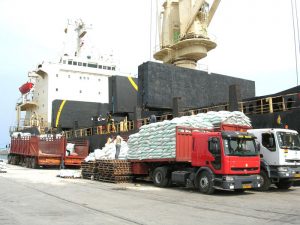Dr Steve Manteaw, the Co-Chairperson of the Ghana Extractive Industries Transparency Initiative (GHEITI), has stressed the need for Ghana to shift from the over-reliance on revenue from natural resources to pursue her development agenda.
He said history had revealed that most countries, which relied heavily on their natural resources for development, had failed and remained under-developed despite their huge natural resource base.
At the presentation of the 2015 and 2016 Annual Reports of Ghana’s Mining, Oil and Gas Sectors in Kumasi, Dr Manteaw said Ghana should concentrate on expanding her tax revenue base, to raise the indexes of tax inflows for the national development agenda.
Dr Manteaw said the implementation of numerous GHEITI initiatives had brought a wide range of reforms to the fiscal regime, especially in the mining sector where varied royalties had been introduced.
This, according to him, had brought on board numerous positive socio-economic impacts, describing it as “satisfactory.”
He cited, for instance, the stabilisation of the royalty regime in mining, which was between three to six per cent fixed rate.
Again, cooperate income taxes have been increased from 25 per cent to 35 per cent and also staggered the recovery of capital allowances by companies.
He said previously, mining companies operated up to 15 years without paying any taxes, but GHEITI had insisted that they should not be made to recover all their capital expenditures before coming into tax paying positions.
“We have asked them by law, to stagger their recovery at 20 per cent every year, and in worse cases, we expect the company to come into tax paying position after five years and not the fifteen years that we have been accustomed to,” he stated.
Mr Bashiru Abdul-Razak, the GHEITI National Coordinator at the Ministry of Finance, said Ghana had, so far, produced 13 and six mining and oil/gas reports respectively, with various findings and recommendations, which had helped inform a wide range of policy, legislative and institutional reforms in the extractive sector.
He said discussions were on-going among Extractive Industries Transparency Initiative (EITI) stakeholders and the board, for clarifications to the EITI standard in areas of gender considerations, improving systematic disclosures of data by government and industry and reflecting progress on commodity trading transparency.
Mr Abdul-Razak said talks were also going on to address challenges in licensing allocations, contract disclosures to improve transparency and ensure open door policy in the extractive industry.
Source: GNA






